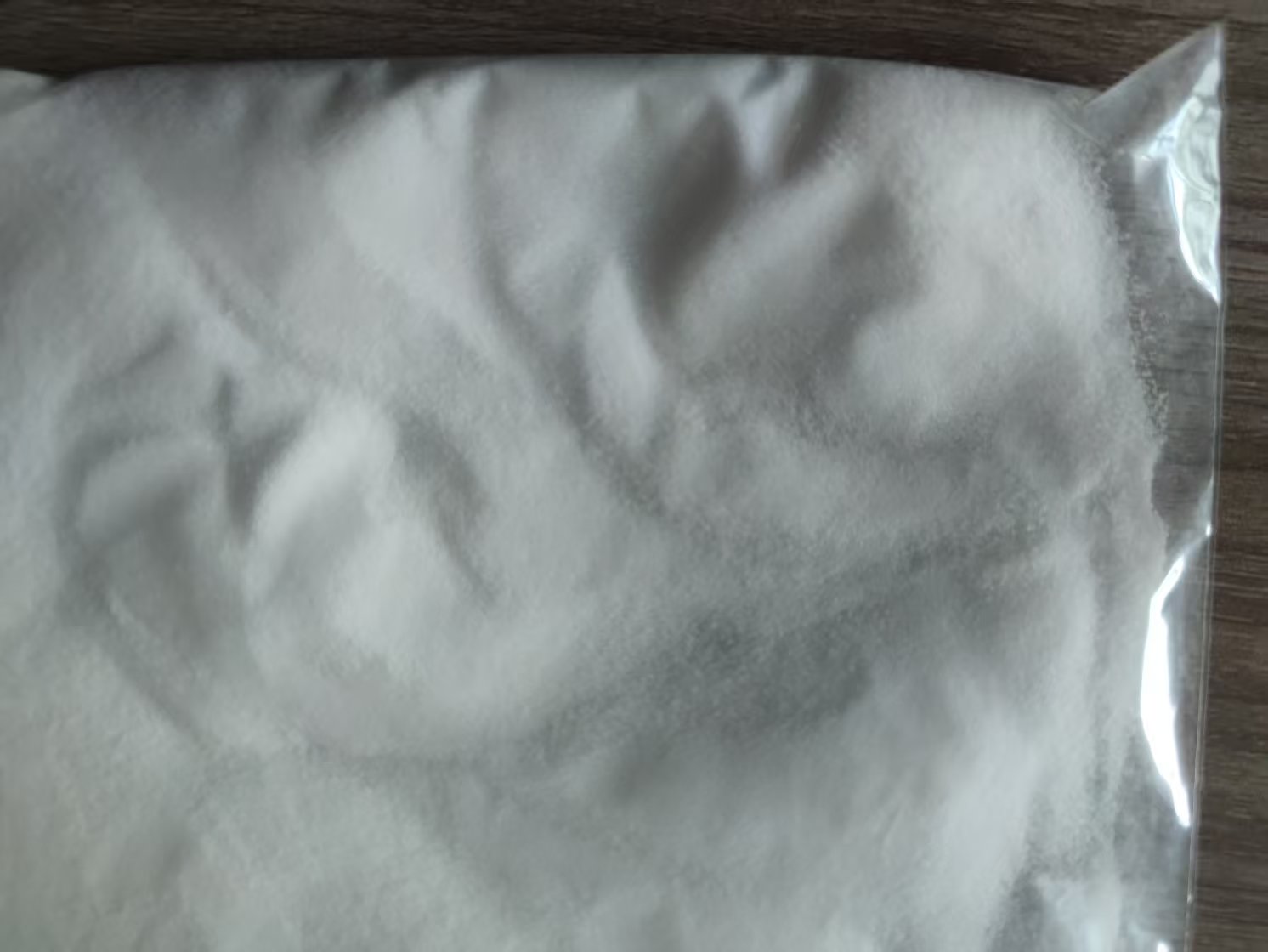
济南聚大邦成化工有限公司
联系人:张总
电话:13583111587
网址:www.jnjdbc.cn
地址:济南市天桥区新材料市场南区7-1-1
精萘厂家:实验室八大化学物质如何存放?
化学类实验室一般需要用到各类化学试剂,除供日常使用外,还需要储存一定量的化学试剂。大部分化学试剂都具有一定的毒性,有的是易燃、易爆危险品,因此,了解一般化学药品的性质及保管方法尤为重要。较大量的化学药品应放在样品储藏室中,由专人保管。危险品应按照国家安全部门的管理规定储存。
Chemical laboratories generally require the use of various chemical reagents. In addition to daily use, they also need to store a certain amount of chemical reagents. Most chemical reagents have a certain degree of toxicity, and some are flammable and explosive dangerous goods. Therefore, it is particularly important to understand the properties and storage methods of general chemical drugs. A larger amount of chemical drugs should be stored in the sample storage room and kept by a dedicated person. Dangerous goods should be stored in accordance with the management regulations of the national security department.
首先要记得:隔离存放!
Firstly, remember to store in isolation!
易燃类、剧毒类、强腐蚀性类、低温贮存的等分类放置;要求化验及仓库管理人员有一定的相关知识。存放于通风、阴凉、温度低于30℃的药品柜中。有些药品遇光容易分解,避光保存。固体、液体;酸、碱分别放置。
Classified placement of flammable, highly toxic, highly corrosive, low-temperature storage, etc; Require laboratory and warehouse management personnel to have certain relevant knowledge. Store in a ventilated, cool, and temperature below 30 ℃ medicine cabinet. Some drugs are prone to decomposition when exposed to light, so they should be stored away from light. Solid and liquid; Place acid and alkali separately.
1、保存试剂的一般要求
1. General requirements for storing reagents
①实验室里应尽量不存放或少存放化学试剂,这样既可防止试剂挥发物对实验室的污染,也可避免化学实验产生的物质对化学试剂的影响。若条件允许,应有室存放化学试剂;
① Chemical reagents should be stored as little or as little as possible in the laboratory, in order to prevent contamination of the laboratory by volatile substances and to avoid the impact of substances produced in chemical experiments on chemical reagents. If conditions permit, there should be a room for storing chemical reagents;
②室内要保持一定的温度和湿度。要避免强光照射,要有良好的排风设备;
② Maintain a certain temperature and humidity indoors. To avoid strong light exposure, it is necessary to have good ventilation equipment;
③化学试剂要放置在能防尘、防止各种蒸气或气体玷污和侵蚀的专用玻璃试剂柜里。要按试剂的性质分类存放;
③ Chemical reagents should be placed in specialized glass reagent cabinets that can prevent dust, various vapors or gases from contaminating and corroding. Classify and store reagents according to their properties;
④对存放的试剂要经常检查瓶上的标签是否完好,字迹是否清楚。如有脱落或模糊,应及时更换;
④ Regularly check the labels on the stored reagents to ensure they are intact and the handwriting is clear. If there is detachment or blurring, it should be replaced in a timely manner;
⑤室内应备齐防火器材和沙箱。
⑤ Fire prevention equipment and sandboxes should be prepared indoors.
2、各种特殊试剂的存放要求及注意事项
2. Storage requirements and precautions for various special reagents
(1)易与空气中成分作用的物质:
(1) Substances that can easily interact with components in the air:
①易与氧气作用的物质:
① Substances that easily interact with oxygen:
钠、钾、钙等活泼金属的单质,需隔绝空气保存,一般保存在煤油或石蜡中。锂应保存在石蜡油里。
Simple elements of active metals such as sodium, potassium, and calcium need to be isolated from air and stored in kerosene or paraffin. Lithium should be stored in paraffin oil.
白磷需保存在水中。铁粉、亚铁盐、亚锡盐、亚硫酸及其盐、氢硫酸及其盐、硫代硫酸钠、苯酚等应密闭保存。
White phosphorus needs to be stored in water. Iron powder, ferrous salts, stannous salts, sulfite and its salts, hydrogen sulfate and its salts, sodium thiosulfate, phenol, etc. should be stored in a sealed container.
②易与水作用的物质:
② Substances that easily interact with water:
钠、钾、钙应保存在煤油中。电石、生石灰、无水硫酸铜、氧化钠、过氧化钠、氮化镁、硫化铝等物质能与水发生反应,应密封保存。浓硫酸、氢氧化钠固体、氯化钙、氯化镁、四氯化锡、五氧化二磷、碱石灰、硅胶、浓磷酸等物质易于吸水或发生潮解,应密封保存。
Sodium, potassium, and calcium should be stored in kerosene. Calcium carbide, quicklime, anhydrous copper sulfate, sodium oxide, sodium peroxide, magnesium nitride, aluminum sulfide and other substances can react with water and should be sealed and stored. Substances such as concentrated sulfuric acid, solid sodium hydroxide, calcium chloride, magnesium chloride, tin tetrachloride, phosphorus pentoxide, alkali lime, silica gel, concentrated phosphoric acid, etc. are prone to water absorption or deliquescence and should be sealed for storage.
③易与二氧化碳作用的物质:
③ Substances that are prone to react with carbon dioxide:
碱类物质(如,氢氧化钠、氢氧化钙等)、弱酸盐类物质(如,硅酸钠、漂白粉等)、过氧化钠、碱石灰等物质应密封保存。
Alkaline substances (such as sodium hydroxide, calcium hydroxide, etc.), weak acid salts (such as sodium silicate, bleach, etc.), sodium peroxide, alkali lime, and other substances should be sealed and stored.
(2)易分解的物质:
(2) Substances that are easily decomposed:
浓硝酸、硝酸银、溴化银、碘化银、氯水、溴水、高锰酸钾、过氧化氢等见光易分解的物质,应保存在棕色瓶中,放于阴暗处。其中溴化银、碘化银应放在暗室中密封保存。
Substances that are easily decomposed by light, such as concentrated nitric acid, silver nitrate, silver bromide, silver iodide, chlorine water, bromine water, potassium permanganate, hydrogen peroxide, etc., should be stored in brown bottles and kept in a dark place. Silver bromide and silver iodide should be sealed and stored in a dark room.
(3)易挥发的物质:
(3) Volatile substances:
浓盐酸、浓硝酸、浓氨水、一切有机溶剂等物质,应密封放于低温处。液溴有毒且易挥发,需盛在磨口细口瓶里,加水密封,再塞上玻璃塞,并用蜡封好,放在阴凉处。
Substances such as concentrated hydrochloric acid, concentrated nitric acid, concentrated ammonia water, and all organic solvents should be sealed and stored at low temperatures. Liquid bromine is toxic and volatile. It should be stored in a ground mouthed fine mouthed bottle, sealed with water, then plugged with a glass stopper and sealed with wax. It should be kept in a cool place.
(4)易升华的物质:
(4) Substances that are easily sublimated:
萘、蒽、碘等物质易升华,应密封保存,放于低温处。
Naphthalene, anthracene, iodine and other substances are prone to sublimation and should be sealed and stored at low temperatures.
(5)易与玻璃作用的物质:
(5) Substances that can easily interact with glass:
氢氧化钠、氢氧化钾等易于与磨口玻璃中的二氧化硅作用,能粘住玻璃塞,故要用带胶塞的容器密闭保存。水玻璃本身有强烈粘玻璃的作用,故也不能用带玻璃塞的容器保存。氢氟酸因具有强腐蚀性,能与玻璃中的二氧化硅反应,因此,不能用玻璃瓶盛放,而应用塑料瓶存放。
Sodium hydroxide, potassium hydroxide, and other substances are prone to react with silica in ground glass and can adhere to glass stoppers, so they should be stored in sealed containers with rubber stoppers. Water glass itself has a strong adhesion to glass, so it cannot be stored in containers with glass stoppers. Hydrofluoric acid, due to its strong corrosiveness, can react with silicon dioxide in glass. Therefore, it cannot be stored in glass bottles, but should be stored in plastic bottles.
(6)易燃性物质:
(6) Flammable substances:
①易燃性液体:
① Flammable liquids:
主要为有机溶剂,如,乙醇、乙醚、丙酮、二硫化碳、苯、甲苯、汽油等,它们极易挥发成气体,遇明火即燃烧。因此,这些液体应密封保存,且要单独存放,要注意:阴凉、通风、远离火源。
Mainly organic solvents such as ethanol, ether, acetone, carbon disulfide, benzene, toluene, gasoline, etc., they are highly volatile into gases and can ignite when exposed to open flames. Therefore, these liquids should be sealed and stored separately, taking care to be cool, ventilated, and away from sources of fire.
②易燃性固体:
② Flammable solids:
硫黄、红磷、镁粉、铝粉等物质的着火点很低,存放处应通风、干燥。
The ignition point of substances such as sulfur, red phosphorus, magnesium powder, and aluminum powder is very low, and the storage area should be ventilated and dry.
(7)易引起中毒物质:
(7) Substances that are prone to poisoning:
氰化物、三氧化二砷或其它砷化物、二氯化汞等,均为剧毒性试剂,侵入消化道极少量即可能引起中毒死亡;可溶性铜盐、钡盐、铅盐、锑盐也能引起中毒,因此,对这些试剂应妥善保管。对剧毒性物质应由专人负责保管。
Cyanide, arsenic trioxide or other arsenides, mercuric chloride, etc. are all highly toxic reagents that can cause poisoning and death even in very small amounts when they invade the digestive tract; Soluble copper salts, barium salts, lead salts, and antimony salts can also cause poisoning, therefore, these reagents should be properly stored. Toxic substances should be managed by dedicated personnel.
(8)易爆炸的物质:
(8) Explosive substances:
①遇水燃烧爆炸的物质:
① Substances that ignite and explode when in contact with water:
钠、钾、钙、电石、锌粉等,可与水剧烈反应,放出可燃性气体,极易引起爆炸。因此,这些物质在存放时应与易燃物、强氧化剂等隔离且密封保存。
Sodium, potassium, calcium, calcium carbide, zinc powder, etc. can react violently with water, releasing flammable gases and easily causing explosions. Therefore, these substances should be isolated and sealed from flammable materials, strong oxidants, etc. during storage.
②因发生强烈氧化还原反应而引起爆炸的物质:
② Substances that cause explosions due to strong oxidation-reduction reactions:
过氧化物(如,过氧化氢、过氧化钠、过氧化钡)、强氧化性含氧酸(如,高氯酸)及其强氧化性盐(如,硝酸盐、氯酸盐、重铬酸盐、高锰酸盐)等强氧化性物质,在受热、受撞击或混入还原性物质时,就可能引起爆炸。因此,存放时一定不能与可燃物、易燃物、还原性物质放在一起,应存放在阴凉、通风处。
Peroxides (such as hydrogen peroxide, sodium peroxide, barium peroxide), strong oxidizing oxygen-containing acids (such as perchloric acid), and their strong oxidizing salts (such as nitrate, chlorate, dichromate, permanganate) may cause explosions when heated, impacted, or mixed with reducing substances. Therefore, when storing, it must not be placed together with flammable, combustible, or reducing substances, and should be stored in a cool, ventilated place.
本文由 精萘厂家 友情奉献.更多有关的知识请点击 http://www.jnjdbc.cn 真诚的态度.为您提供为全面的服务.更多有关的知识我们将会陆续向大家奉献.敬请期待.
This article is a friendly contribution from the manufacturer of refined naphthalene. For more related knowledge, please click http://www.jnjdbc.cn Sincere attitude. We provide you with comprehensive services. We will gradually contribute more relevant knowledge to everyone. Please stay tuned
推荐阅读/ Recommended reading
- 精萘接触中皮肤防护的核心要点与应对策略 2025-07-07
- 精萘结晶:探寻从液态到固态的 “华丽变身” 密码 2025-07-03
- 精萘品质 “守护者联盟”:解密生产线上的质量保卫战 2025-07-01
- 精萘 “生物分解之谜”:微生物能攻克这个难题吗? 2025-06-25
精萘作为一种常见的化工原料,其性质与应用一直受到广泛关注。了解其毒性特点和合理使用范围,对于安全操作和环境保护具有重要意义。 As a common chemical ra...







